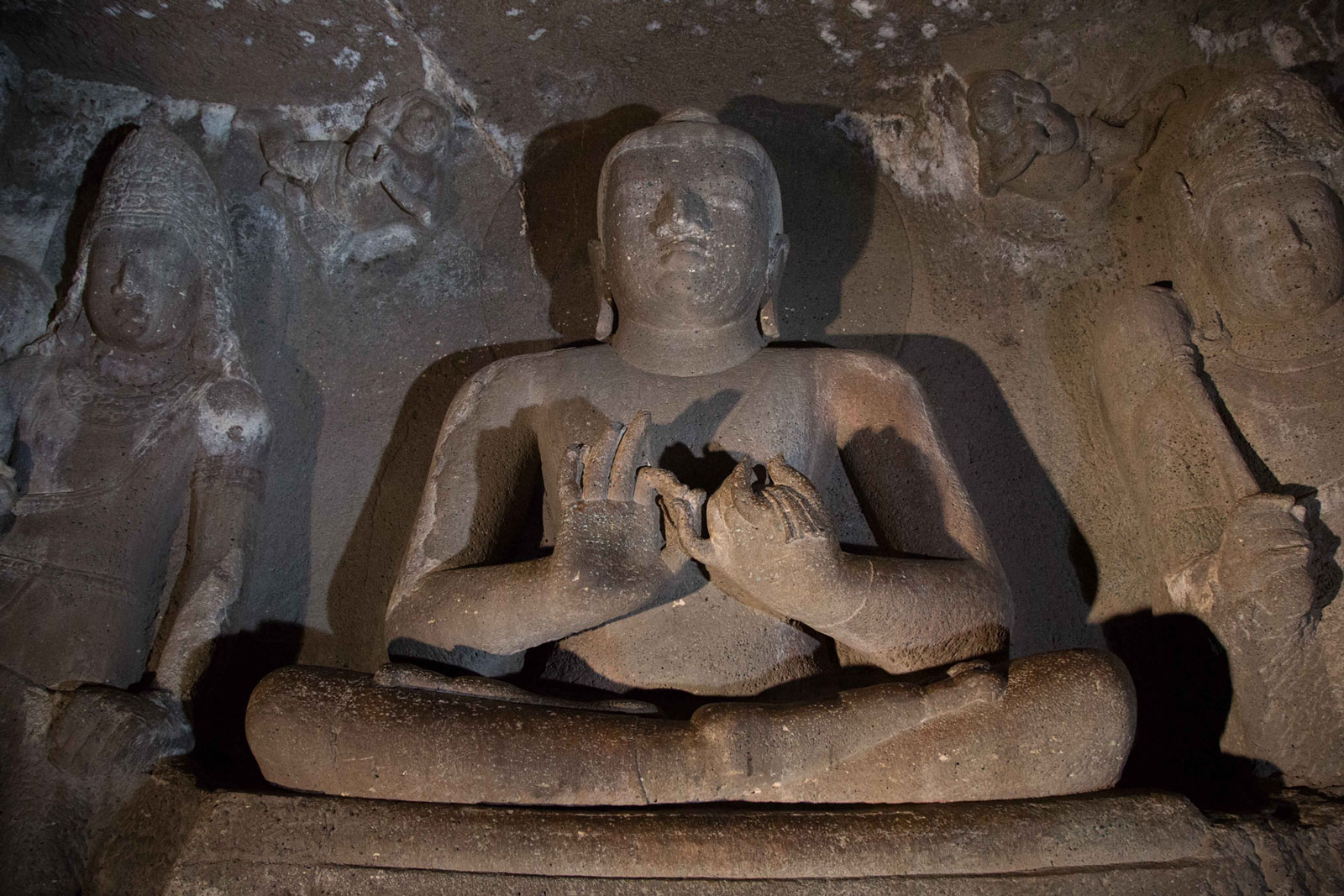I too am a born Brahmin, fortunately, my parents taught me humility.
But going back to the topic.
Buddha answered this question best.
he belief that a group of people can be born superior to all other groups has been around for a very long time, and even existed during the time of the Buddha.
For 3,000 years, society in South Asia has been dominated by the caste system, according to which a person is born into one of four major castes (
varna), or social stations: laborers, merchants, warriors, and brahmins. According to the earliest Hindu scriptures, brahmins—scholars and priests—were the highest caste and viewed as morally and spiritually superior to the others; indeed, they are called “brahmins” because according to one of the hymns of the
Rg Veda, they were born from the mouth of Brahman [God].
In the Pali Canon, the Buddha has many conversations with brahmins who, clearly provoked by his ideas of radical equality, routinely approached him to argue and learn. Late in the
Middle Length Discourses, we meet a group of 500 brahmins who live in the town of Savatthi, where the Buddha is staying at the time. When they hear that the Buddha has been teaching that all the castes are equally “pure,” they are outraged, and decide to send a smart young brahmin to go and debate him.
In the following conversation between the Buddha and the proud brahmin Assalayana (after whom the
Assalayana Sutta is named), the Buddha offers some ways to address the obdurate belief in superiority of caste, race, or any other birth group.
Master Gotama, the brahmins say, ‘Brahmins are the superior caste; any other caste is inferior. Only brahmins are the fair caste; any other caste is dark. Only brahmins are pure, not non-brahmins. Only brahmins are the sons and offspring of Brahma: born of his mouth, born of Brahma, created by Brahma, heirs of Brahma.’ What does Master Gotama have to say with regard to that?
The Buddha begins to dismantle Assalayana’s notions of superiority by noting that we all enter the world the same way:
But, Assalayana, the brahmins’ brahmin-women are plainly seen having their periods, becoming pregnant, giving birth, and nursing [their children]. And yet the brahmins, being born through the birth canal, say, “Brahmins are the superior caste . . .”
The Buddha grounds this initial discussion in physical reality, as it is difficult to argue that people who give birth the same way are fundamentally different. Besides, how delightful is it that a creature who emerges from the nether end of its mother can entertain fantasies about its own transcendent superiority! We see from this exchange that the Buddha has a wry sense of humor as well as a comedian’s gift for drawing out the absurd.
The Buddha then proceeds to ask questions that he already knows Assalayana’s answers to. First, whether a person is a brahmin, a warrior, a merchant, or a laborer, if he does bad things, can he expect to suffer bad consequences? And if he does good things, can he expect to be rewarded with good consequences? Surely, replies Assalayana. Good people are good people, and bad people are bad people, no matter what they come from, and all can be expected to suffer the appropriate consequences. Even a brahmin supremacist has to admit to knowing some brahmins who are terrible people and some farm laborers who are wise and noble.
Next, the Buddha asks whether brahmins, warriors, merchants, and workers have the same relationship to their bodies and to the physical world. When anybody from any caste goes down to the river to bathe, do they not all scrub their skin and then rinse with water? And when they start a fire using logs, kindling, and a lighter, do they not all produce fire and heat, and smoke that makes everyone cough? Using the same materials and techniques, every human being will produce the same fire; thus notions of caste superiority have no basis whatsoever in the physical nature of the world.
At this point, in case Assalayana doesn’t believe that the laws of physics, chemistry, and biology have any bearing on the issue of ethical supremacy, the Buddha swerves back to the question of merit within the same caste. Between two brahmin brothers, is it possible for one to be worthier than the other—for example, the hard-working, respectful brother, versus the lazy, slanderous one? That is, when we’re dealing only with brahmins, it is clear that merit has nothing to do with birth; at least, we behave as if the more virtuous brother has deserved more respect.
To his credit, at this point in the conversation Assalayana has already understood the weakness of his prejudices.
The brahmin student Assalayana sat silent, abashed, his shoulders drooping, his head down, brooding, at a loss for words. He is too intelligent not to see that when he thinks about it, the supremacist posture turns out to be an embarrassment to the intelligence. The Buddha then delivers an amusing
coup de grâce by retelling the legend of the ancient Hindu sage Devala the Dark’s challenge to seven arrogant brahmins:
But do you know, masters, if the mother who bore you went only with a brahmin, and not with a non-brahmin?
No, master.
And do you know if the mothers of the mother who bore you—back seven generations of mothers—went only with brahmins, and not with non-brahmins?
No, master.
And do you know if the father who sired you went only with a brahmin woman, and not with a non-brahmin woman?
No, master.
And do you know if the fathers of the father who bore you—back seven generations of fathers—went only with brahmin women, and not with non-brahmin women?
No, master.
We know next to nothing about the sexual behavior of our parents, let alone our ancestors; about some things there is just no knowing. If we do not know the circumstances of our conception and the conceptions of those who conceived us, we have no right to claim superiority because of birth.
That being the case, do you know who you are? the Buddha asks.
That being the case, master, we don’t know who we are.
Assalayana has learned something, as have we: how a Buddha dispels an inveterate, vehemently held prejudice by calmly asking what it is based on. Throughout all of this, the Buddha has expressed no irritation, anger, or indignation. He is engaging with Assalayana on Assalayana’s own terms, using images and vocabulary from ordinary life. He treats Assalayana with respect, trusting his intelligence and knowing that the young man is smart enough to put two and two together for himself. If the Buddha had asked leading questions, Assalayana would have been put on the defensive and potentially found ways to argue back. Instead, the Buddha appears to be genuinely interested in what Assalayana will say, but he also knows what a reasonable response to the questions will be because the Buddha himself—having been born in the warrior caste—has thought them through.
Did the
Assalayana Sutta shake the caste system to its foundations and transform Indian society? No. Even today, the matrimonial pages of South Asian newspapers will specify not only castes but sub-castes and sub-sub-castes, and fairness of complexion is still explicitly preferred.
But still, for today’s practitioners, this Buddhist sutta illustrates a tactic we might use against racist sentiment: it demonstrates a method of unraveling deep-rooted prejudice by asking questions that activate intelligent reflection. In these times in which racism is openly espoused both in-person and online, this persistent form of questioning might serve as one of the more trustworthy tools we can use against it.
The
Assalayana Sutta (translated by Thanissaro Bhikkhu) can be read
here.
How a Buddhist teaching on dismantling the superiority of the brahmin class can help us take on racism.

tricycle.org
Of course, this site is open to all, and I am deeply hurt by the insult and insensitivity shown to others than these so-called "birth Brahmins".


:max_bytes(150000):strip_icc()/2795392-article-what-is-nature-versus-nurture-5a971887eb97de0036685ad3.png)
